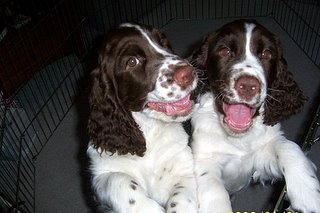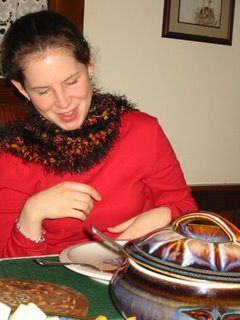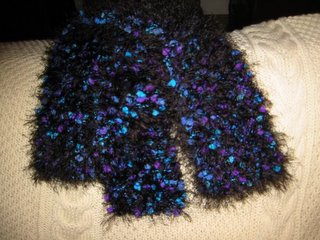Coming of age

When my husband announced he was leaving me one sunny Sunday morning in August 2004, I was already motherless. I realized that when, in the midst of my agony and confusion, the one person I wanted was my mother. But the one person I hid this from was my mother. It took me weeks before I felt strong enough to tell her. She adored Bas, felt that he had really stepped up to the plate in caring for her. She did not know and could not have understood that she and her growing health needs were just one more burden, one more facet of my life from which he had already shut himself off emotionally, and that, when he seemed present for her, he was actually as disconnected as it is possible to be.
In the months that followed, despite the pain of the wound I'd been dealt, I found that I had to simply put my aching heart down, and learn the meaning of being present for my mother. As her hallucinations consumed larger and larger portions of her reality, as her physical abilities slowly declined, and her bank account rapidly evaporated, her role in my life shifted.
She is my mother. She will always be my mother. That is who she is. But now, she is no longer completely who she was. It is now at least a month since I have seen her fully conscious. She sleeps most of the time. It is anything but a peaceful sleep. In her sleep she cries out, and struggles, and pleads for things to stop. And she talks. Oddly, her speech is far more coherent in her sleep or her delirium than it is when she's really trying to relate to reality. When you can understand her words, she is in some other place. When you can't understand her, she is struggling mightily to tell you something which, you can tell from the scraps you manage to catch, actually does have some bearing on what is going on around her.
In her sleep, she calls names. Most often, "Mama." We, her kids, never called her "Mama." She was "Mom," or more often "Mommy." It was her own mother who was "Mama" to her. Her mother died in 1977. In 1977, my mother was 51 years old - two years younger than I am now. Now I know what I didn't know then. She was too young to lose her mother.
The other names she calls are "Isabel," and "Helen." Isabel was her mother's sister, 15 years older than my mother, and more like an older sister to her than an aunt. Almost without fail when she speaks Isabel's name, she rouses enough to open her eyes and look at me and ask, "Isn't she beautiful? Didn't you think she looked beautiful?" It is the voice and question of a little girl. I can only imagine the Isabel, not yet 20 years old, that the little girl who was my mother is seeing.
Helen is Isabel's oldest daughter. She is 15 years younger than my mother. When my mother speaks of Helen, she smiles and laughs, and says, "She's a bugger, isn't she?"
And my father's name, either as Chet, Chester, or Daddy, is another that my mother speaks in her sleep or during her hallucinations. Her own father was "Pop," and while we were growing up, she often called my father Daddy. I know she's talking to him. While I was feeding her her lunch on Christmas day, she clenched her teeth against a forkful of mashed potatoes and refused to eat anymore. When she looked at me, I wasn't sure she was "there." Suddenly, she raised her head as high as she can these days, and called, clear as a bell, "Chester, are you awake?" It made me laugh, and I was swept back to the living room of my childhood home. I could see my father sitting in the armchair which is now in my own living room. His legs are crossed, his hands folded on his knees, and his head is lolling on his chest. He's snoring. And my mother walks into the living room, ready to go wherever we were about to go, or ready to serve dinner, and she says, clear as a bell, "Chester, are you awake?" His head snaps up, his eyes open, he winks at me and he says, "Of course, I am. I was just resting my eyes." My mother was 65 when she lost her husband. I have lost two of them, though neither to death. I know, as intimately as it is possible to know another's heart, that she was not old enough to lose her husband.
Yesterday, I sat on my mother's bed in the skilled nursing home in which she lives, after having wheeled her out of the common room in which I found her, muttering and crying, half or fully asleep, sitting in a row of wheelchairs facing a television which was playing to no one, despite the full room. I thought perhaps we'd manage a few moments of connection and a few words of conversation in the quiet of her own room. She was never with me at all, and for the first time, I never got her to say who I was. So, I held her hand, and I studied her face, and when she got agitated and began to cry, asking for whatever nightmare she was living to stop, I spoke quietly to her and assured her that she was fine, that I was there, that nothing bad was happening to her. She would quiet. And I studied her features, watching the invisible side of her dreams, delusions, and nightmares as they flitted across her eyelids, or drew her mouth down in fear, or made her smile or scowl.
I can see my whole life there, on that face, in that frail hand. The circle has closed, as I have changed her diaper, and cut her food, and wiped her chin. As I try to calm her by bringing her breathing down to match mine, I see my past, when she did the same for me when I was a child who could not sleep, or felt afraid. And I see my future.
I can't see who will be holding my hand. I only hope there will be someone, and that whoever it is, whoever chooses in one moment to be the tether between this place and the next for as long as a tether is needed, will feel the same fullness and love that I feel in those quiet moments when all baggage is set aside, and sharing between mother and daughter is truly open. So, in this moment, left with no choice but to fully be there or not be there at all, I choose to be there. This is an unencumbered connection. This is just about as honest as love gets.












